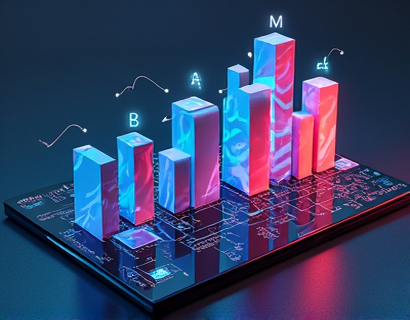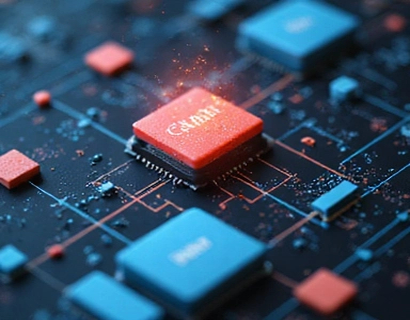Smart Contracts and Management Tools: Revolutionizing Governance for Enhanced Democracy and Participation
In recent years, the intersection of technology and governance has given rise to innovative solutions aimed at transforming traditional democratic processes. Among these, smart contracts and advanced management tools stand out as pivotal elements in creating a more inclusive, transparent, and efficient system of governance. This article explores the transformative potential of these technologies, focusing on how they can streamline decision-making, enhance transparency, and boost community engagement, ultimately fostering a more participatory and universal democracy.
The Role of Smart Contracts in Governance
Smart contracts are self-executing contracts with the terms of the agreement directly written into code. They run on blockchain technology, a decentralized and immutable ledger that ensures transparency and security. In the context of governance, smart contracts can automate and enforce the execution of agreements and policies, reducing the need for intermediaries and minimizing the potential for human error or manipulation.
One of the primary benefits of smart contracts in governance is their ability to streamline decision-making processes. By codifying rules and conditions, smart contracts can automatically trigger actions when predefined criteria are met. For example, in the allocation of public funds, smart contracts can ensure that funds are released only when specific milestones are achieved, as verified by independent parties. This not only speeds up the process but also increases accountability and trust in the system.
Enhancing Transparency through Blockchain
Transparency is a cornerstone of democratic governance, and blockchain technology provides a robust solution to enhance it. The immutable nature of blockchain ensures that once a transaction or contract is recorded, it cannot be altered or deleted. This transparency extends to all stages of governance, from budget allocation to policy implementation.
Citizens can access real-time data on government operations, from financial transactions to the progress of public projects. This level of transparency helps to build trust between the government and the governed, reducing corruption and increasing public confidence in institutional processes. Moreover, the decentralized nature of blockchain means that no single entity has control over the data, further safeguarding against manipulation and censorship.
Boosting Community Engagement
Engagement is crucial for a healthy democracy, and smart contracts and management tools can significantly enhance community participation. By providing accessible and user-friendly platforms, these technologies lower the barriers to entry for citizens who wish to contribute to governance processes.
For instance, smart contracts can facilitate direct democracy mechanisms such as referendums and initiatives. Citizens can propose and vote on policies through a secure and transparent digital platform. The use of smart contracts ensures that the voting process is tamper-proof and that results are immediately verified and recorded. This not only increases participation but also ensures the integrity of the democratic process.
Additionally, management tools can be designed to gather feedback and suggestions from the community on various governance issues. These tools can analyze and prioritize proposals based on community input, ensuring that the voices of all citizens are heard and considered. This participatory approach not only enriches the decision-making process but also fosters a sense of ownership and responsibility among citizens.
Improving Efficiency and Reducing Costs
Traditional governance processes are often bogged down by bureaucracy and inefficiency, leading to delays and increased costs. Smart contracts and management tools can significantly improve efficiency by automating routine tasks and reducing the need for manual interventions.
For example, in the management of public services, smart contracts can automate the allocation of resources based on real-time demand. This ensures that resources are used optimally, reducing waste and improving service delivery. Similarly, management tools can streamline administrative tasks such as reporting, compliance, and auditing, freeing up public officials to focus on more strategic and value-adding activities.
The reduction in administrative overheads translates to cost savings, which can be redirected towards more critical areas of public service. This efficiency not only enhances the performance of government institutions but also increases public satisfaction with the services provided.
Case Studies and Real-World Applications
Several initiatives around the world are already leveraging smart contracts and management tools to revolutionize governance. One notable example is the use of blockchain-based voting systems in Estonia, a country that has been at the forefront of digital governance. The Estonian e-Residency program allows non-citizens to participate in certain governance processes, enhancing international collaboration and transparency.
Another example is the city of Zug in Switzerland, known as the "Crypto Valley," where the local government has implemented blockchain solutions for various municipal services. Smart contracts are used to manage property transactions, ensuring transparency and reducing fraud. The city's digital identity system allows residents and businesses to interact with the government seamlessly, further enhancing efficiency and trust.
These case studies demonstrate the practical benefits of integrating smart contracts and management tools into governance. They not only improve operational efficiency but also enhance the overall democratic experience for citizens.
Challenges and Considerations
While the potential of smart contracts and management tools in governance is significant, there are several challenges and considerations that need to be addressed. One of the primary concerns is the technical complexity and the need for a skilled workforce to develop and maintain these systems. Governments and organizations must invest in training and education to build the necessary expertise.
Another challenge is ensuring the inclusivity of these technologies. Not all citizens may have equal access to the digital tools required to participate in smart contract-based governance. Efforts must be made to bridge the digital divide and ensure that marginalized groups are not left behind.
Privacy and security are also critical considerations. While blockchain offers a high level of security, the transparency of the ledger must be balanced with the need to protect sensitive information. Robust privacy protocols and data protection measures are essential to maintain public trust.
The Future of Governance
The integration of smart contracts and management tools represents a significant step towards a more democratic and participatory governance model. By leveraging these technologies, governments and organizations can create systems that are more transparent, efficient, and responsive to the needs of citizens.
As the technology continues to evolve, we can expect even more innovative applications in governance. The key is to approach these solutions with a focus on inclusivity, transparency, and accountability, ensuring that the benefits of smart contracts and management tools are realized by all members of society.
In conclusion, the future of governance is being shaped by the convergence of technology and democratic principles. Smart contracts and management tools offer a promising path towards a more engaged, efficient, and equitable democratic system. By embracing these innovations, we can build a governance framework that truly serves the people it is meant to serve.











































